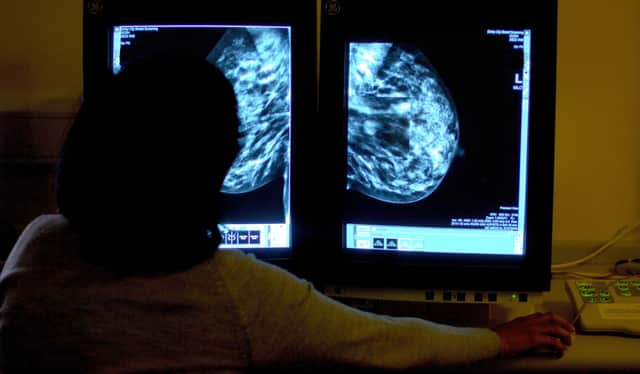Coronavirus: QUB professor warns pandemic could lead to ‘cancer epidemic’


Queen’s, Kings College London and the University of Split in Croatia have been collaborating on new research into the effects of the Covid-19 pandemic on cancer patients.
Published in the European Journal of Cancer, the research shows how the repurposing of health systems and implementation of social distancing measures, including national lockdowns, have had negative effects for cancer patients.
Advertisement
Hide AdAdvertisement
Hide AdThis has included delays in urgent referrals and patients having their cancer treatment, such as chemotherapy, postponed or surgery being delayed.
Professor Mark Lawler from QUB said: “If we don’t act, we risk the unintended consequence of the current Covid-19 pandemic precipitating a future cancer epidemic.”
He continued: “We are already seeing the indirect effects of the Covid-19 crisis on cancer care. Urgent referral numbers are dropping, endoscopies and other surgical procedures are being postponed and many cancer specialists are being redirected to Covid-19 specific care.”
Prof Richard Sullivan, director of the Institute of Cancer Policy at King’s College London and author on the paper, suggested the intense focus on the coronavirus pandemic means cancer has been neglected.
Advertisement
Hide AdAdvertisement
Hide Ad“The focus on Covid-19 through 24-hour news cycle and social media, has dramatically changed our emotional and social infrastructure,” he said.
“At the scientific level, the modelling on which public health measures are being taken is entirely focused on Covid-19 mortality and morbidity, with little or no consideration for the impact of control measures on increasing morbidity and mortality in cancer, or indeed any other health condition.”
Prof Lawlor, who is associate vice-chancellor at Queen’s, added: “Cancer must be firmly in our cross wires, so that we avoid adding the lost lives of cancer patients to the Covid-19 death toll.”
Margaret Grayson, chair of the Northern Ireland Cancer Research Consumer Forum, said: “Patients, especially cancer patients, are extremely worried at this difficult time. Governments and health systems need to reassure patients and citizens, but they also need to act, to ensure that the care of cancer patients is not compromised.”
Advertisement
Hide AdAdvertisement
Hide AdProf Lawler, added: “We must encourage cancer patients, or citizens who are worried that they may have cancer symptoms, to continue to access health systems.”
The researchers’ work looks at cancer rates across Europe and highlights how the 1.9 million annual deaths across the continent may increase significantly as a direct result of the coronavirus pandemic.